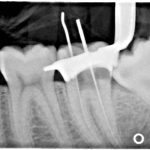
Management of irreversible pulpitis in permanent teeth usually involves root canal treatment or tooth extraction. Improvements in understanding of pulp biology and biomaterials have resulted in increasing use of full or partial pulpotomy for the management of permanent teeth with a number of studies demonstrating good outcomes.
The aim of this review was to determine whether a pulpotomy (partial or full) would result in better clinical, compared with root canal treatment in permanent teeth with pulpitis characterized by spontaneous pain.
Methods
A protocol was registered in the PROSPERO database. Searches were conducted in the Clarivate Analytics’ Web of Science (including Web of Science Core Collection—WoS, Korean Journal Database—KJD, Russian Science Citation Index—RSCI, SciELO Citation Index—SCIELO), Scopus, PubMed/Medline and the Cochrane Central Register of Controlled Trials (CENTRAL) databases. The journals, International Endodontic Journal, Journal of Endodontics, Australian Endodontic Journal, Journal of Dental Research, Journal of Dentistry, and Clinical Oral Investigations and OpenGrey, Google Scholar, Networked Digital Library of Theses and Dissertations , Open Access Theses and Dissertations , DART-Europe E-theses Portal (DEEP ), and EThOS .
Human clinical trials studies [Randomized Control Trials (RCTs), Comparative Clinical trials (CCTs)—non-randomized, longitudinal observational studies (retrospective and prospective comparative cohort and case–control studies)] with at least 20 patients comparing full or partial pulpotomy with root canal treatment (RoCT) with a range of patient and clinician reported outcomes were considered. Only English language papers were included. Two reviewers independently selected studies extracted data and assessed risk of bias using the Cochrane risk of bias tool for randomized trials (RoB 2.0). A fixed-effects meta-analyses was undertaken, and certainty of evidence assessed using the Grading of Recommendations, Assessment, Development and Evaluations (GRADE) approach.
Results
- 2 RCTs involving a total of 957 mature molar teeth reported in 5 papers were included.
- Both RCTs compared full pulpotomy with RoCT.
- The overall risk of bias for both studies was high.
- Clinical success was 98% at year one, for both interventions, decreasing to, 78.1% for pulpotomy and 75.3% for RoCT at 5 years.
- Meta-analysis (2 studies) showed no difference in postoperative pain between RCT and pulpotomy at day 7. OR = 0.99 (95%; CI 0.63 to 1.55).
Conclusions
The authors concluded: –
Only two clinical trials could be included in this systematic review, indicating inadequate information to establish conclusive results. This systematic review suggests that there is no difference in patient-reported pain between RCT and pulpotomy at Day 7 postoperatively, and a single clinical trial suggests that the clinical success rate for both RCT and pulpotomy is similar long term. There is a need for more high-quality randomised clinical trials to develop a stronger evidence base.
Comments
The authors preregistered a review protocol with the PROSPERO database. An extensive databases search was undertaken have restriction of papers to those published in English may have excluded some relevant papers. Only two RCTs were included with both being considered to be at high risk of bias in at least one domain. No significant differences in success rates at 1 and 5 years were seen between the two approaches, and no difference in pain at 7 days. Other reviews (Dental Elf – 24th Sep 2021; 22nd Jul 2019; 10th Jul 2019) have also suggested similar outcomes for RoCT and pulpotomy in permanent teeth. However, the quality of the available studies is not high so additional high quality well reported RCTs using common clinician and patient reported outcomes would be helpful to improve the quality of evidence.
Links
Primary Paper
Tomson PL, Vilela Bastos J, Jacimovic J, Jakovljevic A, Pulikkotil SJ, Nagendrababu V. Effectiveness of pulpotomy compared with root canal treatment in managing non-traumatic pulpitis associated with spontaneous pain: A systematic review and meta-analysis. Int Endod J. 2022 Oct 9. doi: 10.1111/iej.13844. Epub ahead of print. PMID: 36209498.
Other references
Dental Elf – 24th Sep 2021
Dental Elf – 22nd Jul 2019
Dental Elf – 10th Jul 2019
Picture Credits
By Dr Jeffrey Cross DDS – Dr. Cross, CC BY-SA 3.0,
https://commons.wikimedia.org/w/index.php?curid=34846565

I am currently 30 years old. I had partial pulpotomy done on my adult mature tooth (#3) before I was 20 years old by my childhood dentist. There has not been any issues so far with that tooth, no pain and no decay. Dentists have told me to perform a root canal on that tooth by endodontist but I wanted a 2nd opinion- is it possible to just keep this tooth the way it is without issue? I am afraid of getting a crown and would like to keep al my natural teeth.